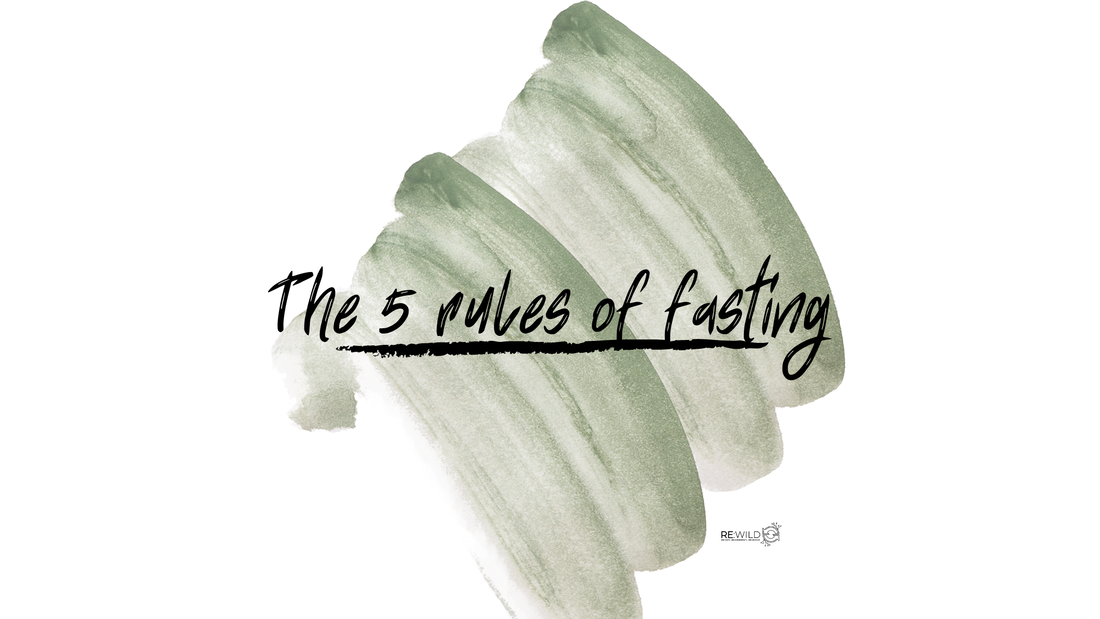|
Depending on your time preference, social commitments, ability, wants, and needs there are numerous fasting protocols to choose from. However, no matter which protocol you choose, there are 5 golden rules you should always follow: 1. Never break your fast with sugar or high-GI foods 2. Always plan your fast 3. Always plan your pre- and post-fasting meal 4. Always drink water 5. Never put yourself in danger Let's delve a little deeper into these rules. 1. Never break your fast with sugar or high-GI foods We’ve already discussed the role of insulin in energy storage. Breaking your fast with High-GI foods elicits a sharp insulin response, and should be avoided at all costs. 2. Always plan your fast As your experience with fasting grows and you begin to develop your intuitiveness, you’ll soon be able to fast with less preparation, but until then, planning your fasting days is key to success. That is, planning how you will go into, and come out of, a fast, and when the fast will take place. Scheduling your fasting days ahead of time will also allow you to prepare around your social calendar and commitments, thus increasing your chances of success. Females might wish to plan a fast around their menstrual cycle (more on this later). 3. Always plan your pre- and post-fasting meal What you eat before and after your fast is essential, not only to your long-term success but the enjoyment of the process and results. One of the main reasons that diets fail is because of the lack of delicious, satiating meals which decreases people’s motivation and satisfaction. Adding extra fibre and protein to your pre-fast meal and having your post-fast meal planned and/or easily available for when you’re finished is a great way to motivate you through your fasting window. 4. Always drink water First, many people misinterpret hunger for thirst, so drinking more water than you usually would can help you feel full during your fast and at least eliminate the ‘thirst confused for hunger’ element. Drinking water throughout your fasting window is also important to prevent dehydration, since we get a lot of our water from the foods we eat (especially veggies). 5. Never put yourself in danger This may seem simple, but many people will put themselves in serious danger while chasing certain fasting goals, especially if they don’t build-up their tolerance to fasting. If your fast makes you feel sick or faint, break your fast following the guidelines above and start again tomorrow. Remember, even a few hours of fasting are great for your digestive system, so take the win. Your tolerance and ability to go longer without food will increase, but too much stress and worry will only increase your cortisol levels (the stress hormone), which also blunts the fat loss process and can damage your health in the long-term. Finally, some people simply should not fast. Skipping meals can be dangerous for people with certain conditions, such as those with a history of eating disorders, anxiety around food, or diabetes. People who take medications for blood pressure or heart disease also may be more prone to electrolyte abnormalities from fasting. If you'd like to learn more about fasting, which type of fasting method is best for you and how to fast correctly, check out The Fasting Playbook for more.
1 Comment
12/1/2023 05:05:55 am
Thank you "rewildwithjc" for this article I was looking for it for past few weeks and it helped me a lot. Thanks again.
Reply
Leave a Reply. |
JcHere I write about everything I love and that interests me. Archives
September 2021
Categories
All
|

 RSS Feed
RSS Feed
